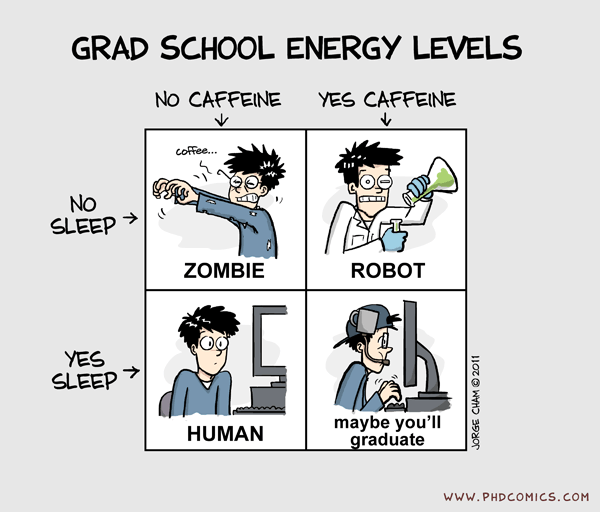Energy-level Playbook
· 2 min read
Knowledge workers have limited cognitive power and willpower. They are lucky if in the zone; however, what if they are not? Therefore, I am introducing an energy-level playbook.

There are four levels of energy.
- Zombie - could hardly do any work.
- Robot - could do some cognitive job but cannot do any complicated task.
- Human - could do relative complex work but cannot be in the zone all the time.
- Rock Star - feeling like a god that can do anything.
What can we do in those states?
-
In the zombie state? Do not work or do little chore work.
- Take a rest.
- Being unfocused and get back to default mode network
- Take a walk/run outdoors.
- Return to nature.
- positive constructive daydreaming (PCD)
- Pretend to be someone else to encourage oneself.
- Chat with friends.
- Drink a cup of coffee and take a nap immediately for 25 mins.
- Being unfocused and get back to default mode network
- Alternatively, entertain oneself, if it is OK to waste the rest of the day. Entertainment will consume more cognitive power and make people feel more tired.
- in software development, do linting, writing predefined tests, introducing/writing automation tools, in which you do not have to use your brain.
- Take a rest.
-
In the robot state? Do preset work.
- check TODO lists and grab simple tasks
- implement a software design in an area that you are highly familiar with
- write documentation or clean up notes
- extensive reading
-
In the human state? Do exploratory work.
- create a new design
- communicate, persuade, or give a talk in public (Do not do these in a robot or a zombie state).
- implement a new and significant component of the system.
- planning
- intensive reading
-
In the rockstar state? Do creative work.
- hard tasks that require long-time focus and complex cognition
- synthesize: intensive researching by reading many materials and writing notes that are connecting the dots